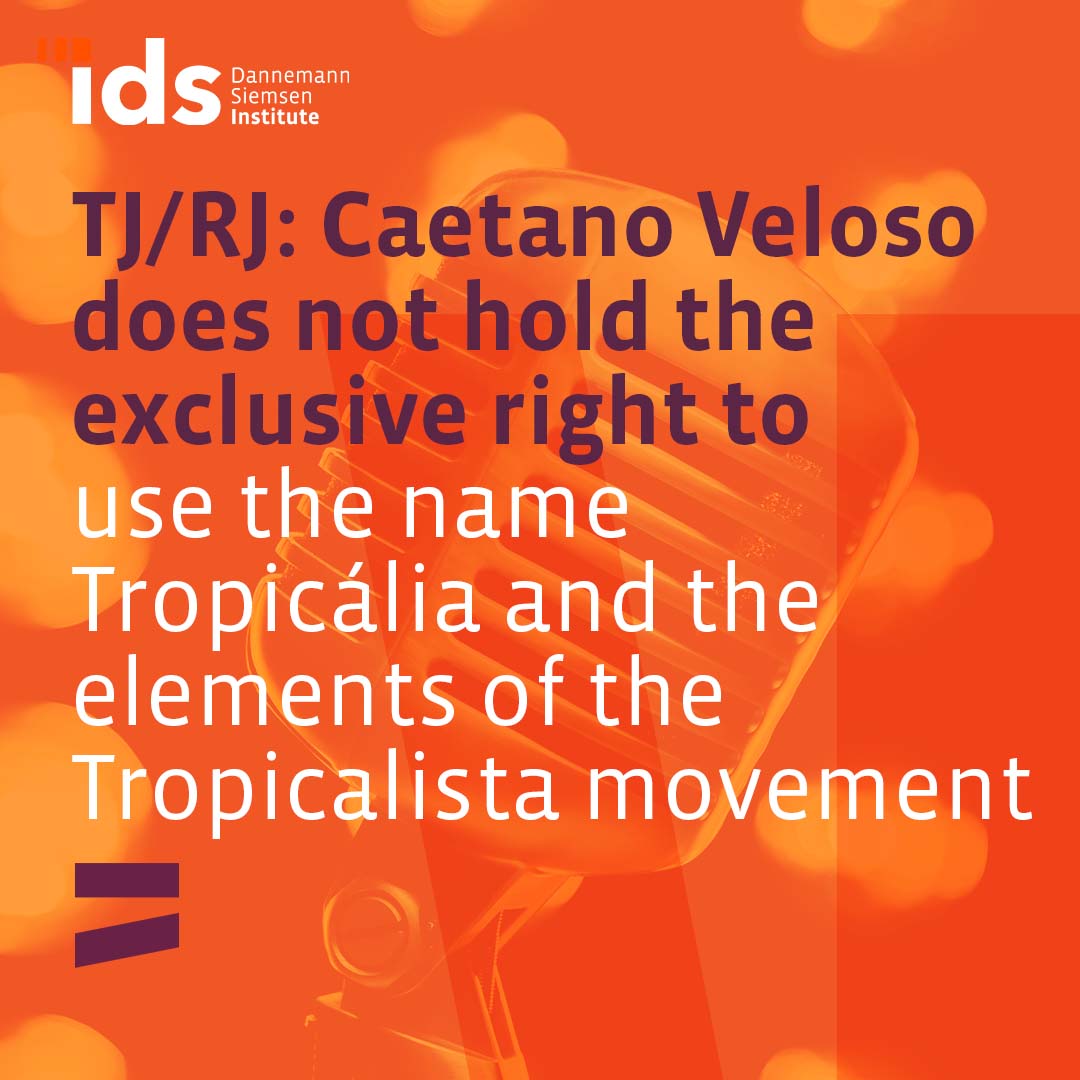27 de junho de 2024
Share
TJ/RJ: Caetano Veloso does not hold the exclusive right to use the name Tropicália and the elements of the Tropicalista movement
In a decision handed down on June 19, Judge Alexandre de Carvalho Mesquita, of the 1st Business Court of the Rio de Janeiro State Court of Justice (TJ/RJ), ruled that the artist Caetano Veloso does not have an exclusive right to use the name Tropicália and the elements of the Tropicalist movement. The singer filed a lawsuit against the company Terras de Aventura Indústria de Artigos Esportivos, owner of the clothing brand Osklen (hereinafter referred to as Osklen), after the company launched a fashion campaign containing elements inspired by Tropicália and its movement.
According to Caetano, Osklen had taken advantage of the premiere of one of his concerts, held to commemorate the 51st anniversary of his album “Transa”, released in the early 1970s, still in the midst of the rise of the Tropicalist movement, to promote a clothing collection with typographic elements that were reminiscent of the movement and similar to the visual communication of his album and concert. Caetano claimed that there was parasitic exploitation in the conduct of the company, which saw the situation as a window of commercial opportunity. The singer pointed out that he was one of the artists who participated in the creation of the Tropicalist movement, that he is the author of a song with the title “Tropicália”, and that the identification of the movement and Tropicália with him is immediate and intuitive, which is why the commercial use of these elements is intended to link his name to the product line of the Osklen collection. Based on these arguments, Caetano requested in the lawsuit that Osklen cease the use of his clothing collection and compensate him for violation of intellectual property and image rights.
Osklen, in turn, argued that the collection was not conceived with the singer or his works in mind, much less inspired by them. It said that the collection was designed, created and promoted before Caetano announced the concert celebrating his album. The company said that the visual and conceptual elements of its collection, called “Brazilian Soul”, were inspired by the Tropicalist movement and Tropicália, and were also based on the work of other artists contemporary to the movement, other than the singer. Osklen also argued that the musician’s attempt to attack freedom of expression without an intellectual property right made the copyright claim unfeasible, either because there is no trademark in the clothing class, or because of Article 8 of the Copyright Law (LDA), which expressly excludes ideas and isolated names and titles from copyright protection. Here, the company also said that the claim for damages offended freedom of expression and affronted the constitutional guarantee of access to the sources of national culture and the dissemination of Brazilian cultural movements.
In the decision, the judge accepted the allegations and facts presented by Osklen and emphasized first, when making a comparison with the Modernist movement, that a cultural movement involves several artists from different areas, and Caetano cannot claim to be the owner of the Tropicalist movement and its elements for the purposes of appropriating its legacy.
With specific regard to one of the artist’s songs, entitled Tropicália, the magistrate explained that “in fact, in addition to its being impossible to prevent inspiration from Tropicália as a historical fact, the title of the song Tropicália was not created by the author, but was used by him to give an existing name to the song he wrote”. The decision emphasized that the title of the song Tropicália “is not subject to protection by Copyright, since the exception provided for in art. 10 of the LDA [Brazilian Copyright Law] only guarantees protection to the title of the work, if it is original and unmistakable with that of a work of the same genre, previously published by another author”, and “in the case of Caetano Veloso’s ‘musical work’, the title is not original, as it reproduces ipis literis the previous work of Hélio Oiticica [tropicália], of the plastic arts genre and, both this and the song Tropicália are of genres other than fashion and clothing – which is what interests the Brazilian Soul collection”.
Thus, the magistrate stated that “by creating a narrative of malicious appropriation of elements of his own ‘work’ for the creation of a clothing collection, the plaintiff contradicts himself, since he himself has already stated that he was inspired by the Tropicalist movement to compose the music that he later titled Tropicália”.
Finally, the judgment states that it is clear from the evidence presented in the case that Caetano Veloso does not hold any exclusivity over the Tropicalist movement and the name Tropicália and that, for this reason, his claim with the action does not deserve to prosper.
The decision can be accessed via the link: Processo nº 0958997-40.2023.8.19.0001
Note: For quick release, this English version is provided by automated translation without human review.
